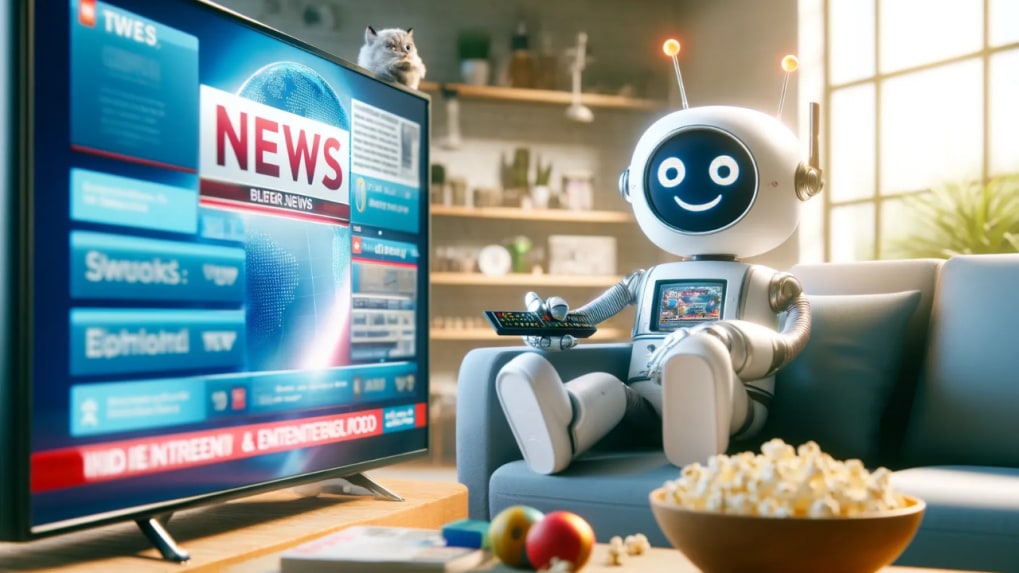Today in AI | AI displacing professionals | Microsoft's new chatgpt model | Bill Gates' AI warning
Storyboard18 brings you the top AI news of the day.
ADVERTISEMENT
The world of Artificial Intelligence has only begun to affect human lives. In times like these, staying up-to-date with the AI world is of utmost importance. Storyboard18 brings you the top AI news of the day.
AI displacing young professionals in tech fastest, warns Goldman Sachs
Joblessness among young professionals in the technology sector is rising rapidly, according to Joseph Briggs, Senior Global Economist at Goldman Sachs Research. Speaking on a recent episode of the bank’s podcast, Goldman Sachs Exchanges, Briggs warned that younger tech employees are at the greatest risk of being displaced by advances in artificial intelligence.
The economist highlighted a sharp increase in unemployment among individuals aged 20 to 30 who are attempting to establish careers in the technology industry. Since the beginning of 2024, joblessness within this age group has surged by nearly three percentage points — a rise more than four times the national average. According to Goldman Sachs, this trend marks the early phase of AI-driven job displacement in white-collar sectors, with entry-level roles bearing the initial impact.
“If you look at the tech sector’s employment trends, they’ve been growing as a share of overall employment in a remarkably linear manner for the last 20 years,” Briggs noted on the podcast episode, scheduled for release on Tuesday. “Over the last three years, we’ve actually seen a pullback in tech hiring that has led it to undershoot its trend,” he added.
Microsoft brings OpenAI’s new free GPT model into Windows 11 via AI
Microsoft has begun rolling out OpenAI’s newly released open-source language model, gpt-oss-20b, to Windows 11 users through its Windows AI Foundry platform. The move is part of Microsoft’s broader effort to bring powerful AI capabilities directly to users’ devices, reducing dependence on cloud-based infrastructure.
The company stated that it aims to empower developers and users to access AI features, APIs, and leading open-source models locally on their PCs. Gpt-oss-20b, described as both “tool-savvy” and lightweight, is engineered for agentic tasks such as executing code and using digital tools autonomously. The model is optimised to perform efficiently across a variety of Windows hardware configurations, making it well-suited for building autonomous assistants or integrating AI into local workflows—especially in bandwidth-constrained environments.
To run the model locally, however, systems must be equipped with GPUs offering at least 16GB of VRAM, typically found in recent Nvidia or AMD Radeon cards.
Bill Gates warns Gen Z: AI alone won’t guarantee you a job
Microsoft co-founder Bill Gates has raised an alarm for Gen Z that Artificial Intelligence will not be enough to secure a stable job. While the billionaire called the new-age technology "fun and empowering", he cautioned that the same tech will wipe out entry-level jobs.
According to a report by Burning Glass Institute, automation threatens 60% of entry-level roles across various sectors. In another report, McKinsey predicted that up to 30% of work hours in the US could be automated, affecting freshers.
Recently, investment banker Goldman Sachs noted that the tech sector's employment rate has been declining ever since OpenAI launched ChatGPT in November 2022. The unemployment rate for 20-30-year olds in tech has risen by nearly 3 percentage points since early 2024--4x the increase in the overall jobless rate. The investment bank said that soike in joblessness is an indicator that AI is gradually taking over white-collar work in the entry-level jobs.
OpenAI offers 'premium' ChatGPT to US government agencies for just $1
OpenAI has taken a bold step in expanding its footprint within the US federal government by offering its enterprise-grade AI product to public agencies for a token fee of just $1 per agency over the next year.
The initiative is part of a new agreement between OpenAI and the US General Services Administration (GSA). Through the deal, OpenAI will provide access to ChatGPT Enterprise, its most advanced commercial AI offering, at a nominal cost via the GSA’s Multiple Award Schedule (MAS)—a centralised contracting vehicle designed to simplify technology procurement for civilian federal agencies, as per a report by TechCrunch.
With this move, OpenAI positions itself in direct competition with other approved AI vendors such as Google and Anthropic, who were also recently added to the MAS list. This aggressive pricing strategy could significantly accelerate the deployment of OpenAI’s tools across federal departments.


